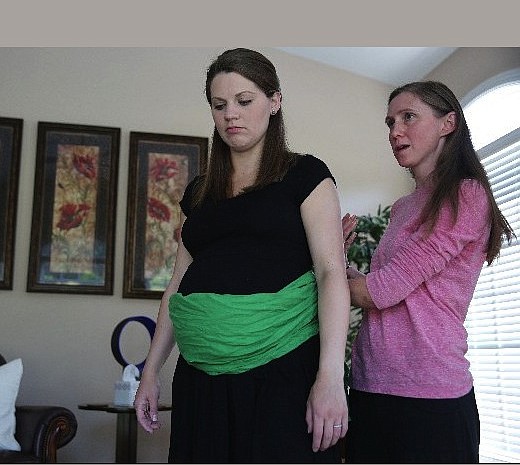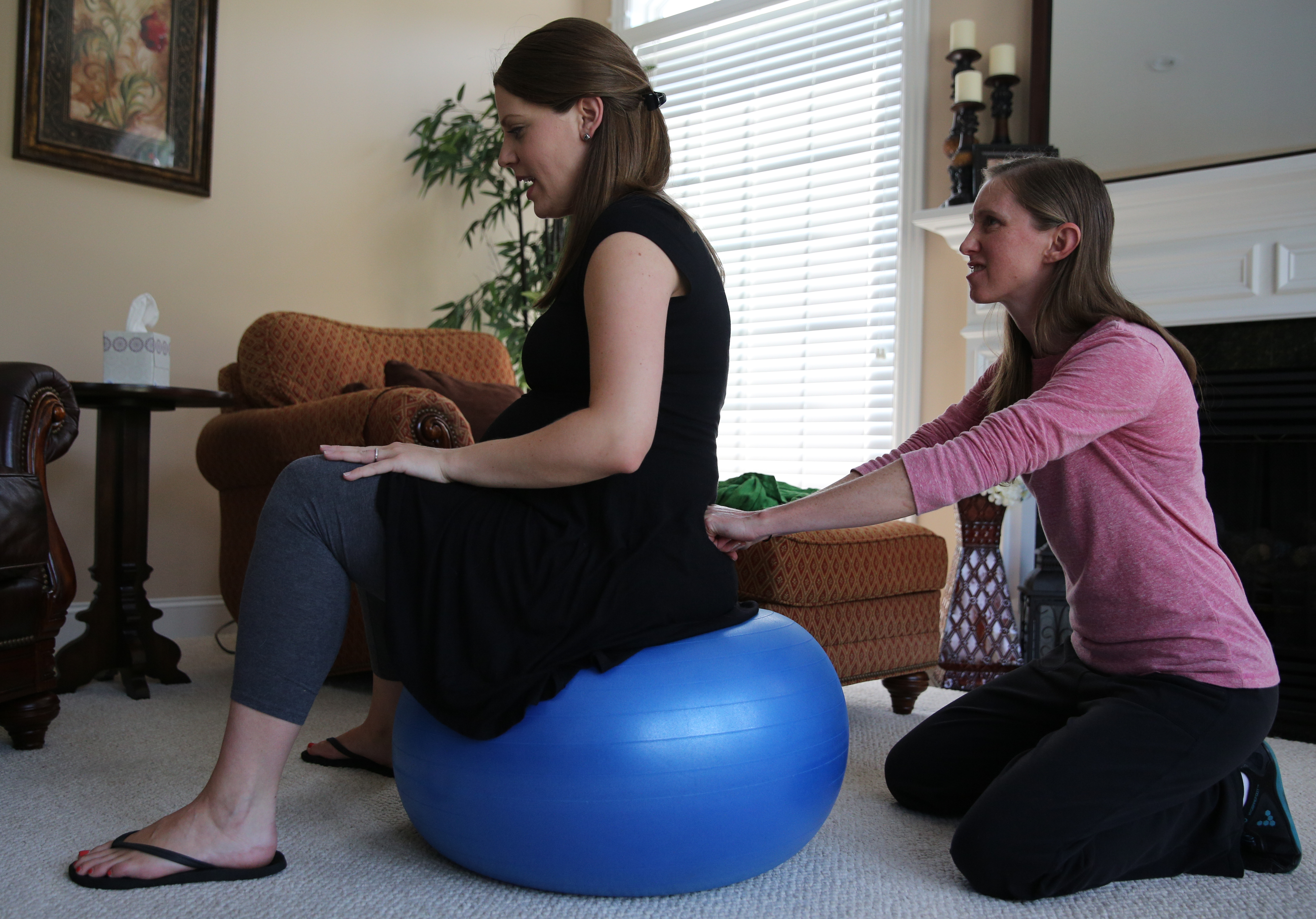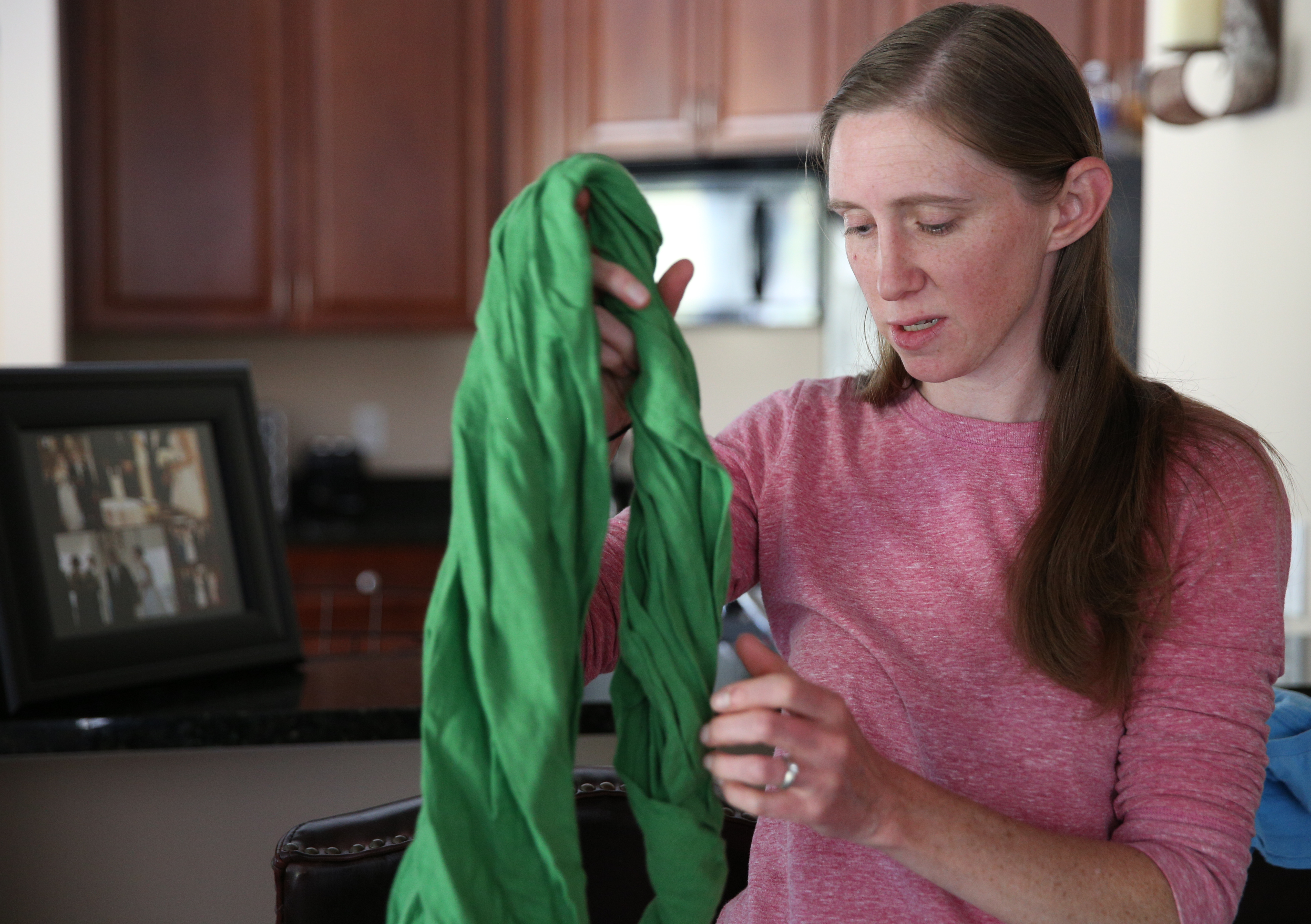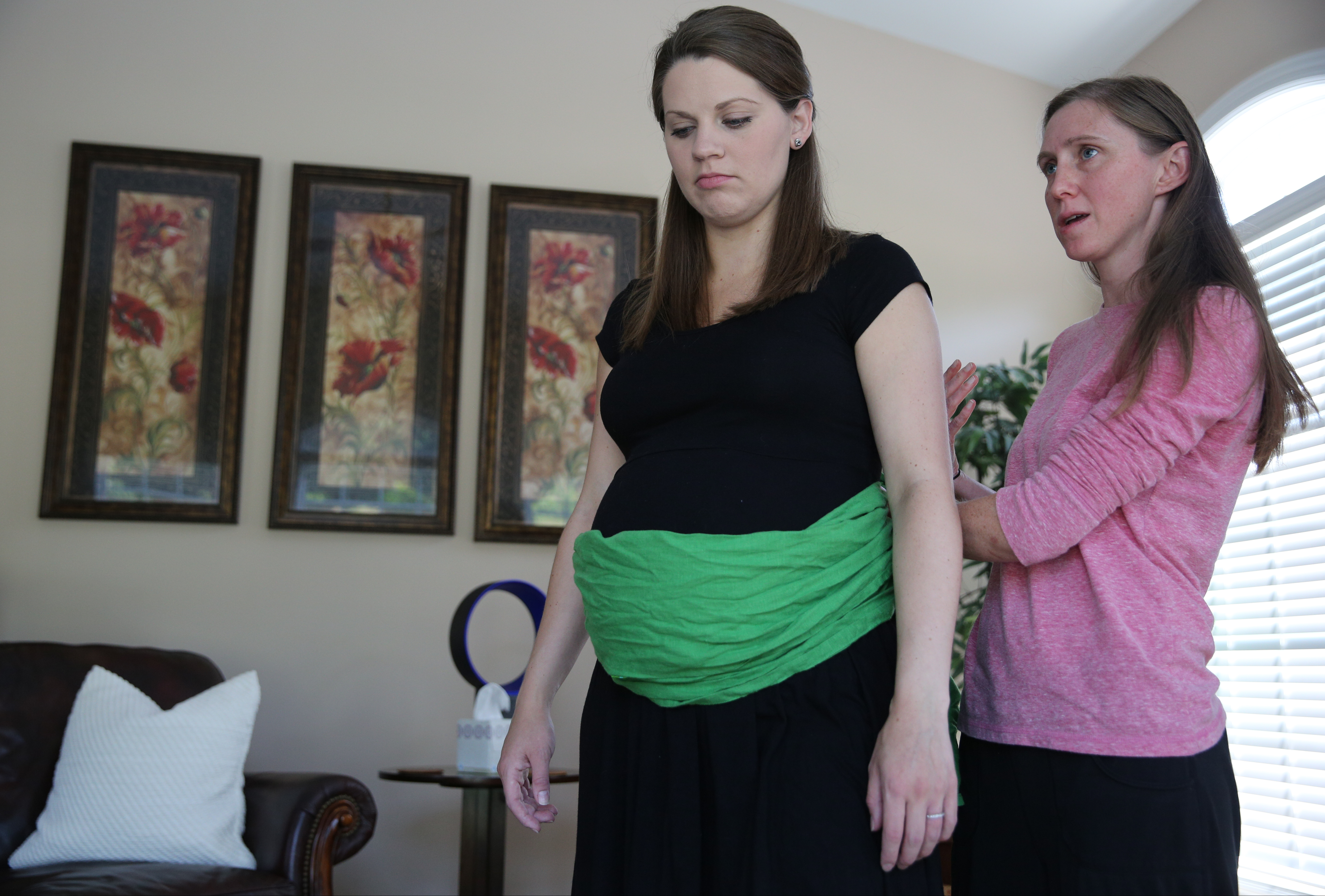DOULA DUTIESPrenatal: Meets with parents and their doctor to work out a birth plan. Answers questions throughout a woman's pregnancy.Labor: On call for about two weeks leading up to the birth. Arrives as soon as a woman goes into labor; stays until an hour or so after the birth.Postpartum: Assists with breastfeeding and recovery from labor. Some make house visits to help cook, clean and care for a new baby and older kids.Price: $400-$700, depending on the doula. Many offer fees on a sliding scale. Newer doulas sometimes work for no cost to gain experience.Where to find oneNurtured Birth Services: www.nurturedbirthservices.comBirth Chattanooga: www.birthchattanooga.comJourney Midwifery: www.journeymidwifery.com
The call might come in the middle of the night, but Rachel Jimenez will be ready. Her bag is packed and ready to go. Her family knows that she might be gone for a few hours, or it might be a couple of days. Jimenez is a doula (pronounced DOO-la) and her job is to help women have babies. Since she started working as a doula 5 1/2 years ago, she has attended more than 100 births. Different from a midwife, a doula provides emotional and physical support for a woman before, during and after labor. She can help with both hospital and at-home births. A doula does not provide formal medical care or advice; they don't take blood pressure or dispense medication. But doulas know birth intimately. Though it's not required, most doulas go through a rigorous certification process that includes lots of reading, an exam and hands-on experience. Many doulas, like Jimenez, apprentice with a midwife to gain experience. Some people looking to become midwives start out as doulas.
•••
The concept of a doula - Greek for "female servant" - is not a new one.
"Women have always helped other women during birth," says Jimenez. "But as birth became more medicalized, women became distanced from their birth experience. Birth was done to them. For many women, the first birth they see is their own - unless they've looked it up on YouTube."
Jimenez will attend Joanne Thomas's birth to a baby girl in June. Thomas, 28, is a first-time mom. She and her husband haven't named an exact due date because they don't want the labor to be induced, a common procedure involving an injection of the drug Patoci, which starts contractions.
"God gave her a birthday when she was formed, and that's all we know," she says.
Thomas also wants a totally natural birth, free of pain medication unless absolutely necessary.
Those preferences are part of her "birth plan," a detailed wish list a doula and her client create before the big day. The birth plan might include medical instructions - how long to wait before cutting the umbilical cord, whether she wants continuous IV fluids, when and if she wants an epidural shot - or preferences like lighting in the room, snacks and birthing positions.
Jimenez has met with Thomas and her husband, as well as their health care provider, and they have worked together in a birthing class on breathing techniques and positions for labor. On the birth day, Jimenez and another doula will be by Thomas' side until after she delivers.
During delivery, a doula might rub a woman's back to relieve pressure during contractions. She might help a laboring woman stand up or change positions. The bag Jimenez takes to each birth contains a rolling pin, tennis ball, a rebozo shawl to tie around a pregnant woman's belly to relieve pressure, honey sticks for energy, essential oils and snacks - all tools she can use to aid a laboring woman. She also might relieve a tired father-to-be while he naps or goes on a food run.
Many doulas advocate for what are called evidence-based birth practices, steering away from heavy sedation, induction of labor, the use of forceps, and unnecessary cesarean sections. If a woman wants a scheduled birth, an epidural or a cesarean section, they will also support her through those processes.
The American Congress of Obstetricians and Gynecologists published a study last March stating that women who had one-on-one support during labor had a much greater rate of satisfaction with their births. Advocates say doula-assisted births can make labor shorter, reduce postpartum depression and reduce the rate of Cesarean sections by half. Doula-assisted births are said to relieve stress, which can actually speed up labor.
"I try to facilitate a discussion between the parents and the doctor," Jimenez says. "A lot of times a care provider will come in and say, 'Let's do this,' and parents are like deer in the headlights. When you're in the middle of labor, it's not a good time to make important medical decisions."
That discussion isn't always welcome, says Michelle Shrum, the nurse manager for labor and delivery at Erlanger hospital.
Most women Shrum sees with a hired doula are opting for natural births. When doulas encourage moms to refuse things like fetal monitoring or an IV port, "it can turn into a struggle between the nurse and the patient," Shrum says. "If we get a new nurse and she mentions she's also a doula, I tell her she may want to hold off telling that to the other nurses."
But nurses with a distaste for doulas probably just haven't worked with a good one, she says. Doulas can help fill the gaps between staff shift changes and busy hospital staff. They can suggest positions to speed up labor and stay by a mother's side to calm her down.
The doulas of Birth Chattanooga, a community of doulas that formed in 2012, like to think of themselves as a bridge between care providers and families.
"Most care providers are happy to do whatever a mother requests, but you have to know to ask," says Reshae Massey, a member of the group. "There are standard procedures in hospital births. It's like going through a drive-through: If you order a number 3, you're going to get the standard toppings."
The members of Birth Chattanooga also emphasize that doulas aren't just for women seeking natural births.
"I had a woman apologize to me after she got her epidural because it wasn't a part of her original birth plan," says Jessica Willison, a member of the group. "I told her, 'Please, don't apologize. You have misunderstood my role.' It's about doing whatever the mom feels comfortable with, fulfilling her vision for her birth."
Members of the group have their eye on expanding their reach to a larger community, especially lower income women, single women and women whose husbands might be away for their birth.
"No woman should give birth alone," says Willison.



